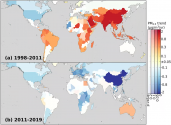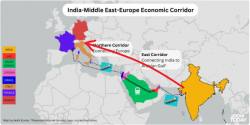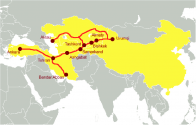Now that's what power is.

“More than 90% of the reduction of global mean exposure from 2011 to 2019 is from China, according to our regional attribution. This result was astonishing when it was derived, but it could be explained well by the rapid reduction of PM2.5 concentrations due to China’s mitigation efforts, which benefit nearly one-fifth of the global population.”

The researchers also identified a stagnation in global PM2.5-related deaths, attributable to the downward trend in pollution exposure. Globally, yearly PM2.5-attributable death increased by 0.97 million from 1998 to 2011 and decreased by 0.70 million afterwards. Their calculations revelated that reductions in global PM2.5 exposure from 2012 to 2019 contributed to delaying 2.65 million deaths that otherwise would’ve been attributable to that exposure.
“By combining PM2.5 data with health and exposure-response models, we also revealed that, despite the recent sustained reduction of global PM2.5 pollution, population aging and growth are now the main challenges in alleviating PM2.5 health impacts,” said Li. “Reducing the same amount of PM2.5 now will have stronger health benefits than it would have 20 years ago, a globally prevalent phenomenon highlighted in our study.”
The researchers say China needs to continue its good work.
“There is a need to continue to sustain and develop global monitoring capabilities for PM2.5 both from satellite, but also from ground-based measurements,” Martin said. “The successes in PM2.5 reductions serve to demonstrate the benefits of PM2.5 mitigation efforts, and to motivate further mitigation.”


